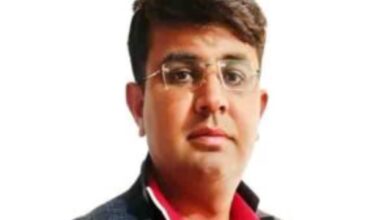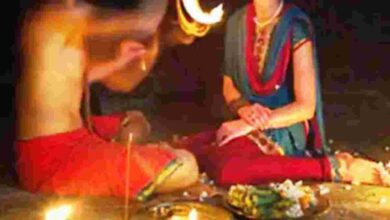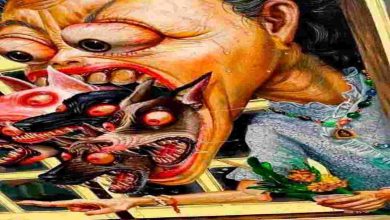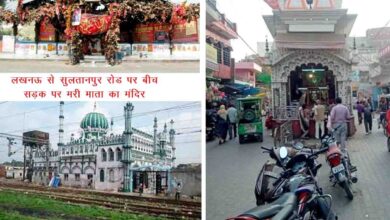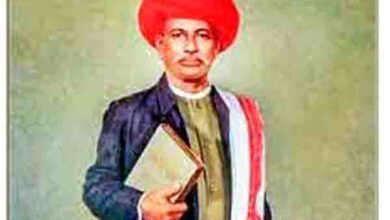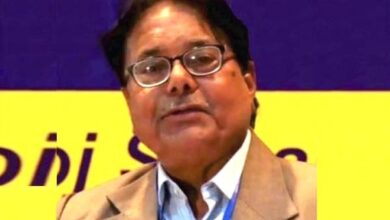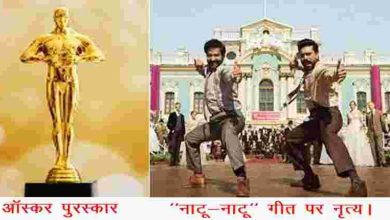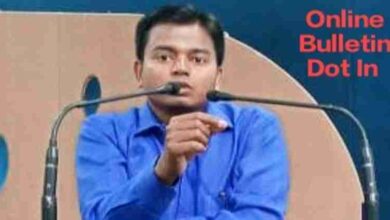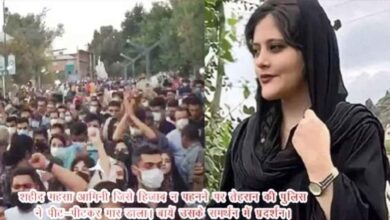बिना हड़ताल के हम जंग जीते! हॉकरों की मदद मिली थी !! bina hadataal ke ham jang jeete! hokaron kee madad milee thee !!
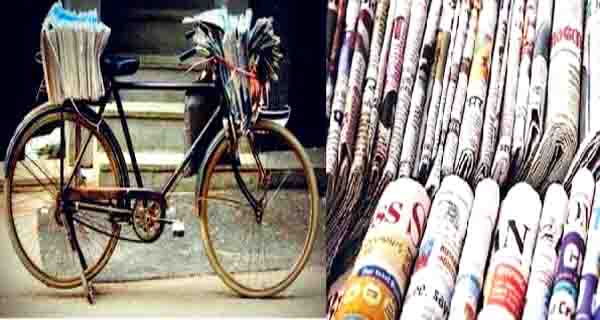
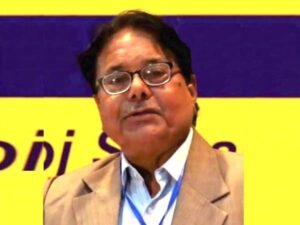
©के. विक्रम राव, नई दिल्ली
–लेखक इंडियन फेडरेशन ऑफ वर्किंग जर्नलिस्ट (IFWJ) के राष्ट्रीय अध्यक्ष हैं।
लखनऊ पुलिस ने नागरिकों को सुझाया है ( कल 24 अगस्त 2022) कि शहर छोड़कर जायंे तो अखबार मंगवाना बंद कर दें। हाकर को बता दें। वर्ना अखबारों का ढेर देखकर चोर को आभास हो जायेगा कि रास्ता सरल बन गया है। मगर एक ने जानना चाहा कि अगर हाकर से ही पता चला गया तो? यहां मेरा मतलब हाकरों पर शुबह करने से नहीं है। शायद पुलिस ने सुरक्षात्मक मतलब से ऐसी राय दी हो।
एक श्रमजीवी पत्रकार के नाते मेरी यह मान्यता है कि समाचार पत्र प्रकाशन में संपादक ऊपरी छोर है तो हाकर सबसे निचली ओर है। दैनिक रद्दी हो जायेगा, मर ही जायेगा, यदि पाठकों तक वह न पहुंच पाया तो ? अतः हाकर एक माध्यम है, एक पुल होता है।
यूं भी हाकर कोई साधारण जन नहीं होते। अमेरिका में न्यूजपेपर उद्योग से जुड़े कुछ बड़े नाम पढ़े। वे लोग शुरूआत में अखबार बेचकर जीवन यापन करते थे। चन्द नाम प्रस्तुत है। हेरी ट्रूमन जो अमेरिका के तेतीसवें राष्ट्रपति थे जिन्होंने द्वितीय विश्वयुद्ध में हिटलर को हराया था। उनके सेनापति रहे जनरल डीडी आइजनहोवर बाद में राष्ट्रपति बने। दोनों हाकर रहे थे। वैज्ञानिक टामस एडिसन जिनके आविष्कारों ने जनसंचार (सिनेमा, उपकरण, रिकॉर्डिंग ) को बढ़ाया, भी कभी अखबार बेचते थे। इन्हें हाकरों ने 18 जुलाई 1899 को अपनी आर्थिक मांगों का समर्थन में बहुत बड़ी हड़ताल भी की थी। भारत में रायपुर के पुराने दैनिक ‘‘देशबंधु‘‘ के विक्रेता पवन दुबे का नाम परिचित है।
अर्थात हम पत्रकार क्योंकि अपनी मांगें मनवाने में बड़े बलहीन रहे, अतः हाकर हमारी यूनियन के शक्ति के स्तंभ रहा। एक बार लखनऊ में अखबार बंद करने पर हम बड़े कमजोर निकले। मगर तभी एक पत्रकार ने जो हाकरों के आत्मीय थे हमारे संघर्ष को सफल बना दिया। वे है भास्कर दुबे। एक योग्य पत्रकार, लेखक और हाकरों के संगठनकर्ता। उनकी मदद से पत्रकारों का आंदोलन बड़ा बलवान बन गया। लखनऊ के अखबारी मालिकों को भास्कर दुबे ने इसका सम्यक अहसास करा ही दिया था।
अपने श्रमिक संघर्ष के लम्बे दौर में हम पत्रकारों को नयी तकनीक भी इजाद करनी पड़ी थी। यह बड़ी दिलचस्प रही। याद आया गुजरात में बड़ौदा के निकट खेड़ा जनपद में कस्बा है मातर। यहीं खेड़ा सत्याग्रह 1918 में बापू ने चलाया था। ब्रिटिश सरकार को लगान देने से किसानों ने मना कर दिया था। सरदार पटेल यहीं गांधीजी से पहली बार मिले थे। तो इस कस्बे के एक वरिष्ठ पत्रकार वजीहुद्दीन हमारी गुजरात पत्रकार यूनियन के पदाधिकारी थे। अपना तखल्लुस (उपनाम) ‘‘वज्र मातरी‘‘ रख लिया था।
वे दैनिक ‘‘गुजरात समाचार‘‘ के चीफ सब एडिटर थे। एक बार उन्हें कुछ गुजराती वर्तानी की त्रुटि के कारण मालिक शांतिलाल शाह ने निलंबित कर दिया था। तब मैं गुजरात पत्रकार यूनियन में महासचिव था। हमने शुद्ध गांधीवादी आंदोलन चलाया। सारे साथियों को निर्देश था कि बिना मात्रा के खबरें मुद्रित होंगी। अर्थात कोका कोला छपेगा: ‘‘काला काला‘‘ जैसा। मुख्यमंत्री लिखा जायेगा: ‘‘मख्यमंत्र‘‘।
दूसरे दिन मालिक को पाठकों की शिकायत आयी। शाहजी गुस्से से संपादकीय विभाग में आये और चिल्लाये ‘‘मात्री क्यां छे?‘‘ (गुजराती में मात्रा को स्वरमात्री कहते हैं)। सभी डेस्क वाले अत्यंत शील, सधे हुए तरीके से जवाब देते: ‘‘मालिक, मात्री को तो आप ही ने निकाल दिया।‘‘ अंततः मालिक ने वज्र मातरी को बहाल कर दिया। तो फिर मात्रा भी वापस लगने लगी।
लेकिन सबसे यादगार गांधीवादी विरोध हमारा बड़ा कारगर हुआ था। एक निष्ठुर, सामंती प्रवृत्ति के अखबारी मालिक अपने कर्मियों को बोनस के नाम पर सालाना केवल एक स्टील का लोटा देता था। जबकि कानूनन एक या डेढ़ माह का वेतन देना अनिवार्य था। उस दैनिक में आतंक इतना व्यापक था कि हमारे सदस्य संघर्ष ही नहीं कर पाते थे।
एक युक्ति हमें सूझी। उनकी पुत्री के विवाह का समारोह था। इसमें मुख्यमंत्री, राजनेता, शासकीय अधिकारी, विशेषकर श्रम विभागवाले अतिथि थे। हमने सूचना जारी कर दी कि हमारी यूनियन के लोग प्लेकार्ड लेकर सड़क पर खड़े रहेंगे और हर एक आगंतुक से आग्रह करेंगे कि हमारी बोनस की मांग का समर्थन करें। खौफ इतना उपजा कि बिना प्रदर्शन किये हमारी मांग स्वीकार कर ली गयी। यह सत्याग्रह की शैली उस साबरमती के संत द्वारा सृजित थी, जिसका आश्रम हमारे ‘‘टाइम्स आफ इंडिया‘‘ कार्यालय से अहमदाबाद में केवल पांच किलोमीटर था। मुझे बापू तब बड़े जबरदस्त आंदोलनकारी लगे, जिन्होंने बिना एक भी गोली चलाये महाबली बर्तानी कब्जेदारों को सागर पार खदेड़ दिया था।
उस समय हमारे ‘‘टाइम्स आफ इंडिया‘‘ एम्लाइज यूनियन, जिसका मैं अध्यक्ष था, ने भी बोनस संघर्ष चलाया। श्रमजीवी संघर्ष के अनुभव के आधार पर मेरी कोशिश रही थी कि हड़ताल न हो, क्योंकि उससे कार्मिकों का वेतन कटता था। हमने ‘‘नियमानुसार काम‘‘ करने का संघर्ष चलाया। दूसरे शब्दों में इसको ‘‘गो स्लो‘‘ कहते हैं। अर्थात पीटीआई/यूएनआई के टेलिप्रिन्टर से चपरासी खबर की कापी फाड़ कर लाने में दस मिनट ज्यादा लगाने लगा। संपादन-शीर्षक के लिये डेस्क भी 20 मिनट अधिक लेगा। बाकी दारोमदार प्रेस कर्मचारी पर था। अर्थात अखबार छपकर आने तक घंटा ज्यादा लग जाता था। हजारों प्रतियां बिना बिके लौट आती थीं। बस चन्द दिनों में ही वार्ता हुयी। प्रबंधन को समझौता करना पड़ा। हमारा काम फिर अधिक फुर्ती से होने लगा। हमारा नारा था: ‘‘जैसा दाम, वैसा काम।‘‘
गुजरात में हमारी यूनियन के मेहनतकशों की कशमकश को बड़ा समर्थन और हमदर्दी मिली गांधीवादी अर्थशास्त्री श्रीमन नारायण तथा उनकी पत्नी मदालसा नारायण से। वे राज्यपाल थे। तब राष्ट्रपति शासन था। फलस्वरूप राज्य श्रम विभाग बिना दबाव के कार्य करता था।
हालांकि आज के एलेक्ट्रोनिक दौर में हम सब संगठन के हिसाब से बड़े कमजोर हो गयें हैं। अधिकतर साथी भी प्रबंधक हो गये जो सीधी कार्रवाही के दायरे से बाहर हो गये। ठेकेदारी पर सेवा की प्रणाली आ गयी। अब शोषण तथा दमन के तरीके भी आधुनिक हो गये। अतः पूरा माहौल ही दूसरा हो गया। नयी पीढ़ी को अधिकारों हेतु लड़ाई के अब नये शस्त्र गढ़ने होंगे। किन्तु हमारा शाश्वत नारा वहीं रहेगा: ‘‘हर जुल्मों सितम के टक्कर में, संघर्ष हमार नारा है।‘‘

We won the war without a strike! Hawkers had help!!

K Vikram Rao
The author is the National President of the Indian Federation of Working Journalists (IFWJ).
Lucknow Police has advised citizens (tomorrow 24 August 2022) to stop ordering newspapers if they leave the city. Tell the hacker. Otherwise, seeing the pile of newspapers, the thief will realize that the path has become easy. But one wanted to know that if he came to know from the hacker itself? Here I do not mean to congratulate the hawkers. Perhaps the police gave such an opinion out of protective means.
As a working journalist, I believe that in newspaper publications, the editor is at the top and the hacker is at the bottom. The daily will become garbage, will die, if it does not reach the readers? So a hawker is a medium, a bridge.
There are no ordinary people like this. Read some big names associated with the newspaper industry in America. Initially, they made a living by selling newspapers. Few names are presented. Harry Truman who was the thirty-third President of America who defeated Hitler in World War II. His general, General DD Eisenhower, later became the President. Both were hawking. The scientist Thomas Edison, whose inventions enhanced mass communication (cinema, equipment, recording), also once sold newspapers. These hawkers also had a huge strike on 18 July 1899 in support of their economic demands. The name of Pawan Dubey, the seller of the old daily “Deshbandhu” of Raipur in India, is familiar.
That is, because we journalists were very helpless in getting our demands made, so Hakar remained the pillar of our union’s strength. We came out very weak once we closed the newspaper in Lucknow. But then a journalist who was close to the hackers made our struggle successful. He is Bhaskar Dubey. A qualified journalist, writer and organizer of hawkers. With his help, the movement of journalists became very strong. Bhaskar Dubey had made the news owners of Lucknow feel right about it.
During the long period of our labor struggle, we journalists also had to invent new technology. It was very interesting. I remembered that near Baroda in Gujarat, there is a town Matar in Kheda district. It was here that Bapu started the Kheda Satyagraha in 1918. The peasants refused to pay rent to the British government. It was here that Sardar Patel met Gandhiji for the first time. So Wajihuddin, a senior journalist of this town, was an office-bearer of our Gujarat Journalists Union. He had kept his Takhallus (nickname) “Vajra Matari”.
He was the Chief Sub Editor of the daily “Gujarat Samachar”. Once he was suspended by owner Shantilal Shah due to some Gujarati spelling error. Then I was the general secretary of the Gujarat Journalists’ Union. We started a pure Gandhian movement. All the companions were instructed that the news would be printed without quantity. That is, Coca-Cola will be printed like: “Black Black”. The Chief Minister will be written: “Chief Minister”.
The next day the owner got a complaint from the readers. Shahaji angrily came to the editorial department and cried “Matri kya chhe?” (in Gujarati the quantity is called swaramatri). All the desk men would reply in a very polite, direct manner: “Master, you have thrown out the mother.” Eventually the master reinstated the thunderbolt. Then the quantity also started coming back.
But the most memorable Gandhian protest was our greatest success. A ruthless, feudal newsprint owner used to give his workers only one piece of steel annually in the name of bonus. Whereas it was mandatory to pay one and a half month’s salary by law. The terror in that daily was so widespread that our members could not even fight.
We got a trick. His daughter’s marriage ceremony was held. The Chief Minister, politicians, government officials, especially those from the labor department were the guests. We issued notice that our union people would be standing on the street carrying placards and urging every visitor to support our demand for bonus. The fear grew so much that without protesting our demand was accepted. This style of Satyagraha was created by the saint of Sabarmati, whose ashram was only five kilometers from our “Times of India” office in Ahmedabad. I found Bapu to be a great agitator then, who had driven the Mahabali British occupiers across the ocean without firing a single bullet.
At that time our “Times of India” employees union, of which I was the president, also launched a bonus struggle. On the basis of the experience of the proletarian struggle, I tried not to go on strike, as it deducted the wages of the workers. We waged a struggle to “work according to the rules”. In other words it is called “go slow”. That is, the peon took ten minutes more to tear the copy of the news from the teleprinter of PTI/UNI. The desk will also take 20 minutes more for editing titles. The rest was on the press staff. That is, it used to take more than an hour till the newspaper came out. Thousands of copies were returned unsold. The talks took place in just a few days. Management had to compromise. Our work again started happening more quickly. Our slogan was: “As price, like work”.
The struggle of our union workers in Gujarat received great support and sympathy from the Gandhian economist Shriman Narayan and his wife Madalsa Narayan. He was the governor. Then there was President’s rule. As a result the State Labor Department used to work without any pressure.
However, in today’s electronic era, all of us have become very weak according to the organization. Most of the comrades also became managers who were out of the purview of direct action. The system of service on contract came. Now the methods of exploitation and oppression have also become modern. So the whole atmosphere became different. The new generation will now have to forge new weapons of fighting for the rights. But our eternal slogan will remain the same: “Har oppression sitam ke takkar mein, struggle is our slogan”.


